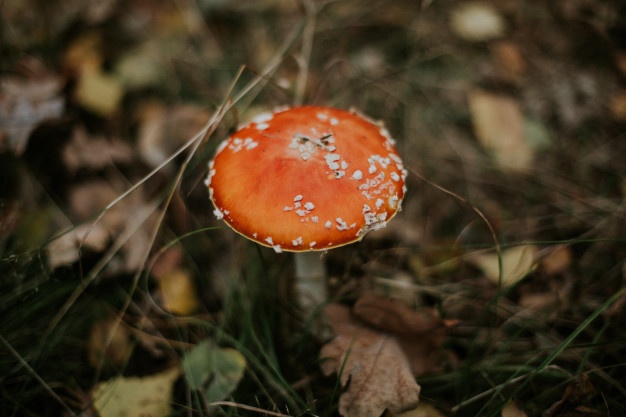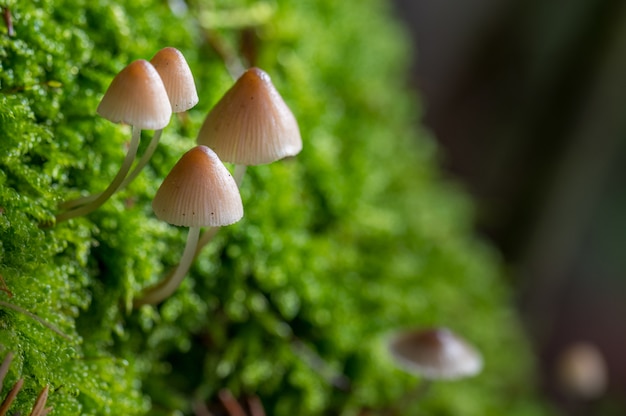
People have been taking magic mushrooms since the late 50’s to have psychedelic experiences. These psychoactive fungi cause extreme hallucinations, euphoria, laughter, and deep thinking. People describe the effects of magic mushrooms as a “trip”. While some people view the effects of these mushrooms as a spiritual experience, they can cause an array of adverse health risks.
Aside from the commonly known effects of magic mushrooms, they can also cause less desirable psychological effects. For example, many individuals experience extreme paranoia, confusion, and feelings of impending doom when they consume magic mushrooms. When someone experiences the negative effects of shrooms, they refer to the experience as a “bad trip”. However, some people experience more than just a bad trip. Magic mushrooms can have lasting effects such as dependency, addiction, and even long-term psychosis.
To learn more about magic mushroom addiction and help your loved ones, continue reading.
“Magic mushrooms” is the layman term for psilocybin mushrooms. Psilocybin is a naturally-occurring psychoactive and hallucinogenic substance. In other words, psilocybin is the chemical compound found within magic mushrooms that causes individuals to experience a trip. Traditionally, these fungi were found in the wild. However, when people discovered their psychedelic properties they began cultivating them inside of a lab.

Psilocybin mushrooms are hallucinogenic drugs that cause people to see, feel, and hear sensations that appear to be real. However, the effects of magic mushrooms are highly unpredictable. This is because a person’s environment plays a huge role in the effects they experience during a psilocybin trip. Other factors that influence the effects of shrooms include one’s dosage, age, weight, personality, mental health status, and current emotional state.
While the effects of psilocybin mushrooms are not life-threatening in the traditional sense, they can cause dangerous mental health effects such as psychosis. Additionally, users may experience mushroom poisoning – which causes a range of effects from gastrointestinal disturbances to death.
While many individuals may be attracted to the idea of magic mushrooms, this psychedelic drug can cause serious, lasting effects. One of the main risks of psilocybin mushroom ingestion is long-term psychosis. According to studies, even one large dose of psilocybin can change a person’s personality permanently.
While many debate whether magic mushrooms are addictive or not, people may become dependent on psilocybin for an array of reasons. When an individual repeatedly abuses a substance over a period of time, they begin to experience the phenomenon of craving. Because of this, magic mushroom addiction is possible.
Additionally, many individuals mix other substances with psilocybin mushrooms. Whether they mix cocaine, alcohol, or LSD with magic mushrooms, this can create a psychological dependency. This is extremely dangerous, as mixing multiple substances leads to polysubstance addiction.
Frequently abusing magic mushrooms or suffering from magic mushroom addiction is extremely dangerous. Because of the psychological effects of this drug, individuals are at a high risk of developing long-term psychosis. Additionally, any pre-existing mental health issues will become exacerbated, leading to dangerous outcomes.
Because of the psychological risks of magic mushroom addiction, professional treatment is necessary to recovery. To explain, individuals who repeatedly abuse this drug face a high risk of suicidal thoughts and tendencies. This makes mental health treatment imperative when recovering from psilocybin mushroom abuse.
Let’s take a look at how individuals can find help for a family member suffering from magic mushroom addiction.
If an individual is refusing professional help, it may be time for a drug and alcohol intervention. Drug and alcohol interventions are family meetings that are facilitated by recovery guides with the goal of convincing the individual to attend an addiction treatment facility. The recovery guide’s role is to help plan the intervention, ensure that the conversation goes smoothly, and have plans in place for the individual to attend a drug and alcohol rehab program.

Magic mushroom addiction treatment is highly focused on mental health. While the patient’s body is detoxed from psilocybin and any additional substances, they will be evaluated by a mental health professional. Any existing mental health conditions will be treated through behavioral therapies and group counseling. If medications are needed, they will be administered and managed by a professional psychiatrist. The goal of magic mushroom addiction treatment is to address the underlying causes of the individual’s addiction while treating the lasting mental and physical effects of psilocybin.
Michael Herbert, The Recovery Guide, has more than 30 years of experience working closely with individuals and families dealing with addiction and recovery issues. He is a seasoned Coach and can help you and your family establish long-term goals and access the tools you need for continued abstinence and recovery for the entire family. Get in touch with Michael today at 561-221-7677 to schedule an appointment.